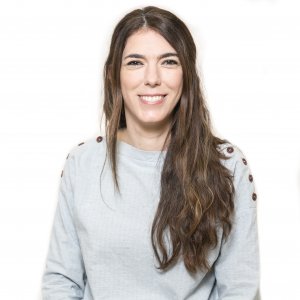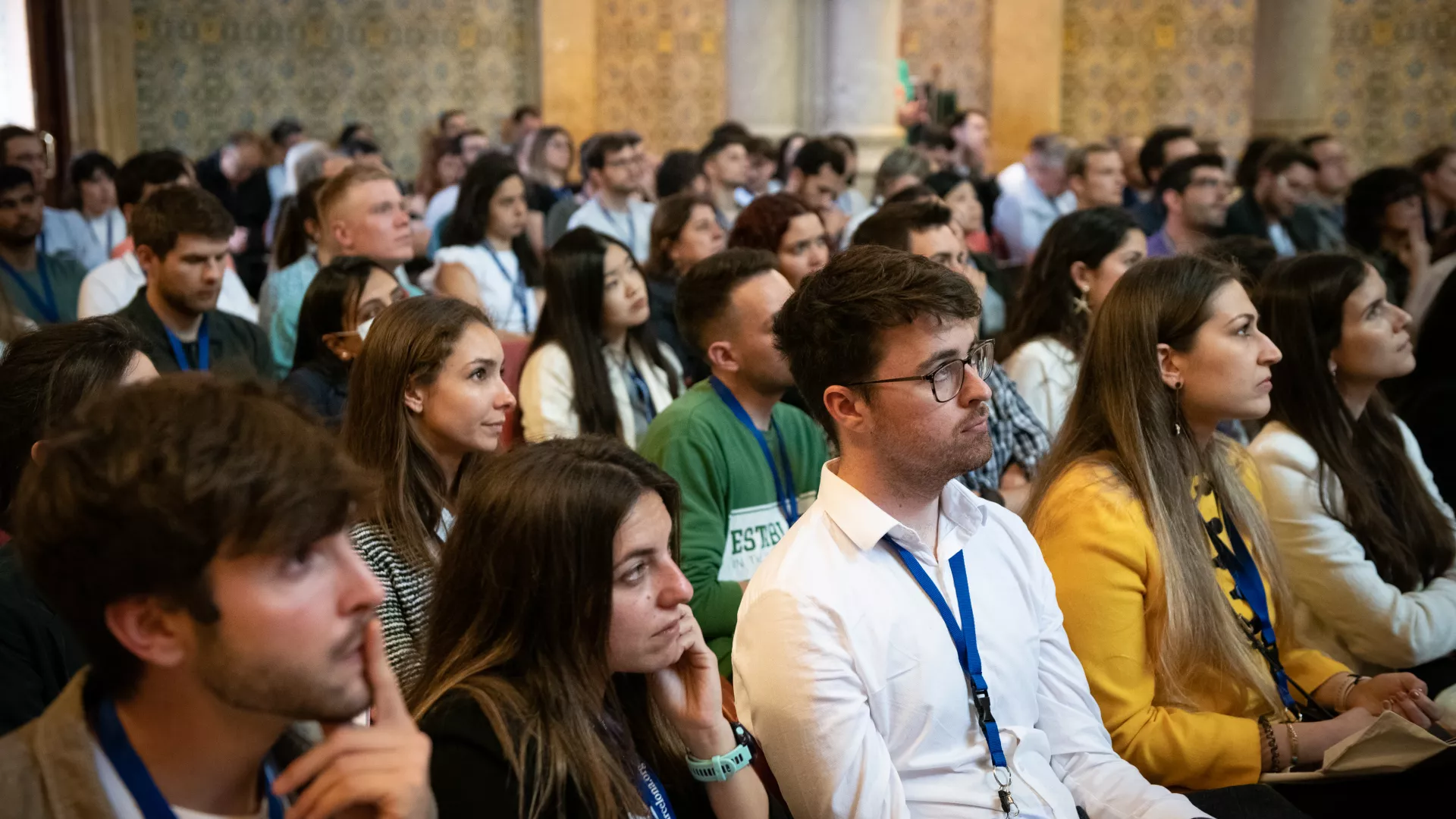Cancers evolve through deterministic genetic and epigenetic events as well as intricate interactions with the tissue microenvironment and host physiopathology. The complexity of these processes has precluded a comprehensive and integrated understanding of the key cancer cell-intrinsic and extrinsic events that enable cancer initiation, progression, and treatment resistance. Contemporary studies enabled by new experimental technologies, computational approaches, sophisticated model systems, and innovative clinical studies have begun to deconvolute this complexity. This new, exciting era in cancer biology is opening new opportunities to understand, predict and intercept the evolution of tumors.
This 40th edition of Biomed conference will provide an interdisciplinary forum for researchers interested in the principles that define and dictate malignant cell fates and the contexts in which these emerge and evolve. The conference will also showcase novel technologies to study cancer cell-intrinsic and extrinsic determinants of tumor evolution (eg. multidimensional profiling, AI, genome engineering, and spatial biology), and emerging concepts for clinical translation.
Topics
• From mechanism to phenotype: emerging concepts and technologies
• Evolutionary trajectories in premalignancy and cancer
• Crosstalk within normal and malignant ecosystems
• Cellular origins and hallmarks of neoplastic identity
• Challenges and opportunities for clinical translation
Presentation
Conference organizers

Dr. Direna Alonso-Curbelo
IRB Barcelona
Barcelona, Spain

Dr. Tuomas Tammela
MSKCC
New York, NY, USA
There is no registration fee for this conference, but the number of participants is limited, with a number of seats saved for IRB Barcelona alumni. Previous registration is required.
Due to the high demand for participation in this conference, the registration deadline has been brought forward on October 1st.
Priority will be given to those who submit the highest quality abstracts for short talks or posters and the order of registration will be considered.
Abstracts should include a title, authors, affiliations, summary (max 250 words) and references
REGISTRATION DEADLINE: OCTOBER 1st, 2023
(Note: Any issue about the registration or abstract, please contact: meritxell.gavalda@irbbarcelona.org)
Programme
Monday, 27 November
8.30 Registration
9.00 Welcome by Dr. Francesc Posas (IRB Barcelona, Director) and organizers
(Dr. Direna Alonso-Curbelo and Dr. Tuomas Tammela)
Session I: From mechanism to phenotype: emerging concepts and technologies
Chair: Dr. Ángela Nieto, Institute of Neurosciences of Alicante- UMH (Elche, Alicante)
9.15 What makes a cell competent to cause cancer?
Dr. Richard White, Ludwig Institute for Cancer Research (Oxford, UK)
9.50 Lessons from the past to predict the future: epigenetic memory in chronic lymphocytic leukemia
Dr. Iñaki Martin-Subero, IDIBAPS/ICREA (Barcelona, Spain)
10.25 Short talk 1: In vivo screening of tumor-hepatocyte interactions identifies Plexin B2 as a gatekeeper of liver metastasis
Costanza Borrelli, ETH Zurich (Basel, Switzerland)
10.40-11.15 Coffee break and poster session
11.15 Epigenetic influence of fatty acid metabolism on metastasis: consequences on cachexia
Dr. Salvador Aznar Benitah, IRB Barcelona/ ICREA (Barcelona, Spain)
11.50 Short talk 2: Unraveling the role of cancer-associated small open reading frames using an in vivo CRISPR screen
Fabiola Valdivia-Francia, Institute For Regenerative Medicine, University of Zurich (Zurich, Switzerland)
12.05 Short talk 3: Functional Dissection of the Basal Cell State in Pancreatic Cancer
Dr. Anupriya Singhal, Memorial Sloan Kettering Cancer Center (New York, NY, USA)
12.20 Investigating tumor evolution and tumor-immune interactions using genetically engineered mouse models of cancer
Dr. Tyler Jacks, Koch Institute for Integrative Cancer Research at MIT (Cambridge, MA, USA)
12.55-14.00 Lunch and poster session
Session II: Evolutionary trajectories in premalignancy and cancer
Chair: Dr. Eduard Batlle, IRB Barcelona/ICREA (Barcelona, Spain)
14.00 Somatic mutation landscapes in large human cohorts
Dr. Iñigo Martincorena, Wellcome Sanger Institute (Cambridge, UK)
14.35 Neoplastic co-option of cell and tissue plasticity in pancreatic tumorigenesis
Dr. Direna Alonso-Curbelo, IRB Barcelona (Barcelona, Spain)
15.10 Evolutionary trajectories from premalignancy to cancer: lessons from the oesophagus
Rebecca C. Fitzgerald, early Cancer Institute, University of Cambridge
15.45-16.15 Coffee break and poster session
16.15 Life history of breast cancer and related clones
Dr. Seishi Ogawa, Kyoto University (Kyoto, Japan)
16.50 Panel Discussion/Colloquium: Placing cancer in context in the AI era
Panelists: Núria López-Bigas, Christina Curtis, Ido Amit, Logan Walsh
Moderators: Tuomas Tammela, Direna Alonso-Curbelo
17.45 End of session
Tuesday, 28 November
Session III: Cellular origins and hallmarks of neoplastic identity
Chair: Dr. Direna Alonso-Curbelo, IRB Barcelona (Barcelona, Spain)
9.00 Altering chromatin accessibility – implications for development and tumourigenesis
Dr. Alexandra Avgustinova, IRB Barcelona / Institut de Recerca Sant Joan de Déu (Barcelona, Spain)
9.35 Stem cells, immune evasion and metastasis in colorectal cancer
Dr. Eduard Batlle, IRB Barcelona/ICREA (Barcelona, Spain)
10.10-10.40 Coffee break and poster session
10.40 Impact of aging on lung plasticity and tumorigenesis
Dr. Tuomas Tammela, Memorial Sloan Kettering Cancer Center (New York, NY, USA)
11.15 Short talk 4: Development and cancer: regulatory elements in pancreatic cancer onset
Dr. Luis Arnes, University of Copenhagen (Copenhagen, Denmark)
11.30 Short talk 5: Pdgfra-expressing stroma responds promptly to intestinal epithelial overgrowth
Dr. Elisa Manieri, Dana-Farber Cancer Institute (Boston, USA)
11.45 EMT and cell plasticity trajectories in cancer progression
Dr. Ángela Nieto, Institute of Neurosciences of Alicante- UMH (Elche, Alicante)
12.20-13.20 Lunch and poster session
Session IV: Crosstalk within normal and malignant ecosystems
Chair: Dr. Núria López-Bigas, IRB Barcelona/ ICREA (Barcelona, Spain)
13.20 Resolving site-specific immune barriers to metastasis
Dr. Ana Luisa Correia, Champalimaud Foundation (Lisboa, Portugal)
13.55 Single-cell spatial landscapes of the lung and brain tumour immune microenvironment
Dr. Logan Walsh, McGill University (Montreal, Quebec, Canada)
14.30 Short talk 6: Spatial differences in the molecular organisation of tumours along the proximal-to-distal axis of the colon are linked to interactions within the tumour ecosystem
Dr. Martin H. Schaefer, European Institute of Oncology (Milano, Italy)
14.45 Organoid cellular cancer immunity models in motion
Dr. Anne Rios, Princess Máxima Center for Pediatric Oncology (Utrecht, The Netherlands)
15.20-16.00 Coffee break and poster session
16.00 Malignant networks in brain tumors (and how to disconnect them)
Dr. Frank Winkler, DKFZ Heidelberg (Heidelberg, Germany)
16.35 Short talk 7: An interactive cellular ecosystem blocks epithelial transformation in naked mole-rat
Dr. Mikaela Behn, DKFZ Heidelberg (Heidelberg, Germany)
16.50 A senescent tumour microenvironment promotes lung cancer initiation and progression
Dr. Daniel Munoz-Espin, Early Cancer Institute, University of Cambridge
17.25 The power of ONE: Immunology in the age of single cell genomics
Dr. Ido Amit, Weizmann Institute of Science (Rehovot, Israel)
18.00 End of session
20.30 Speakers dinner (Restaurant Can Pineda) (Sant Joan de Malta, 55)
Wednesday, 29 November
Session V: Challenges and opportunities for clinical translation
Chair: Dr. Alexandra Avgustinova, IRB Barcelona/ Institut de Recerca Sant Joan de Déu (Bcn, Spain)
9.00 Genetic and non-genetic features of tumor immunity: mismatch repair deficiency as a model system
Dr. Luis Diaz, Memorial Sloan Kettering Cancer Center (New York, NY, USA)
9.35 Short talk 8: Genome-wide CRISPR screens identify novel co-dependencies with KRAS inhibition
Bettina Sajtos, Research Institute of Molecular Pathology (Vienna, Austria)
9.50 Short talk 9: Methylation of the epigenetic regulator KMT2D by SMYD2 contributes to therapeutic response in hormone-dependent breast cancer
Dr. Eneda Toska, Johns Hopkins University School of Medicine (Baltimore, Maryland, USA)
10.05 Clonal selection in normal tissues and its relation to cancer risk
Dr. Núria López-Bigas, IRB Barcelona/ ICREA (Barcelona, Spain)
10.40-11.20 Coffee break and poster session
11.20 Exploring evolutionary contingencies and constraints by rewinding the tape of malignant transformation
Dr. Samra Turajlic, The Francis Crick Institute (London, UK)
11.55 Short talk 10: Origin of second malignancies in pediatric patients
Dr. Mònica Sánchez-Guixé, IRB Barcelona (Barcelona, Spain)
12.10 Short talk 11: Epithelioids: Self-sustaining long-term 3D cultures reveal drivers of clonal expansion in esophageal epithelium
Dr. Albert Herms, Universitat de Barcelona, Barcelona, Spain
12.25 Genomic, host and microenvironmental determinants of cancer progression
Dr. Christina Curtis, Stanford University School of Medicine (Stanford, CA, USA)
13.00 Concluding remarks and end of conference
Venue
The BARCELONA BIOMED CONFERENCE CANCER IN CONTEXT: cellular, tissue, and organismal determinants of malignant fates will be placed at the Casa Convalescència in the heart of Barcelona. Talks will take place in the Aula Magna.
Casa Convalescència
C/ Sant Antoni Maria Claret, 171
08041 Barcelona
Tel +34 934 335 000
www.uab-casaconvalescencia.org
How to reach the Casa Convalescència:
Underground
Yellow line (L4) - GUINARDÓ – HOSPITAL DE SANT PAU station
Blue line (L5) - SANT PAU – DOS DE MAIG station
By bus
Lines: 15, 19, 20, 45, 47, 50, 51, 92 and 192.
For the GPS
Introduce the following coordinates:
Latitude: 41.413702 (41° 24' 49.33'' N)
Longitude: 2.177482 (2° 10' 38.94'' E)
From the airport
* Train + Underground. At the RENFE station, take the train to Sants-Estació. Once there take the Underground's blue line (L5) till SANT PAU – DOS DE MAIG station.
* Bus + Underground. Outside the airport terminal, take the AEROBUS to Plaça Catalunya. Walk one corner till Plaça Urquinaona and take the Underground's yellow line (L4) to GUINARDÓ – HOSPITAL DE SANT PAU station.
Barcelona Metropolitan Transport webiste (with metro and bus maps)
Accomodation
Speakers will be lodged at the Hotel Catalonia Sagrada Familia
Aragó 577- 579
08026, Barcelona
Telephone: +34 93 245 89 05
www.cataloniahotels.com/en/
Other hotels
A list of additional hotels within walking distance of the Casa Convalescència can be found at: https://www.barcelona-tourist-guide.com/en/hotels/hotelmaps/eixample-right-barcelona-hotel.html
(The Casa Convalescència is located near the violet point 27/3 star). Rates will vary depending on choice of hotel and season. Please check with the hotel of your choice directly for the best offer.
Residences
Another possibility is the Lesseps Residence Hall, and is available for short-term stays.
Lesseps Residence Hall
Plaza Lesseps, 12 08023 Barcelona
View on map
Telephone: +34 933 941 600
e-mail: lesseps@resa.es
www.resa.es/en/city/barcelona
Participants registered for events in the Barcelona BioMed series should contact the hotels and residences directly to arrange bookings and payment.
Speakers

Dr. Ido Amit
Weizmann Institute of Science
Rehovot, Israel

Dr. Alexandra Avgustinova
Institut de Recerca Sant Joan de Déu
Barcelona, Spain

Dr. Salvador Aznar Benitah
IRB Barcelona/ICREA
Barcelona, Spain

Dr. Eduard Batlle
IRB Barcelona/ICREA
Barcelona, Spain

Dr. Ana Luisa Correia
Champalimaud Foundation
Lisboa, Portugal

Dr. Christina Curtis
Stanford University School of Medicine
Stanford, CA, USA

Dr. Luis Diaz
Memorial Sloan Kettering Cancer Center
New York, NY, USA

Dr. Rebecca Fitzgerald
University of Cambridge
Cambridge, UK

Dr. Tyler Jacks
Koch Institute for Integrative Cancer Research at MIT
Cambridge, MA, USA

Dr. Núria López-Bigas
IRB Barcelona/ICREA
Barcelona, Spain

Dr. Iñigo Martincorena
Wellcome Sanger Institute
Cambridge, UK

Dr. Iñaki Martin-Subero
IDIBAPS/ICREA
Barcelona, Spain

Dr. Daniel Munoz-Espin
Early Cancer Institute
University of Cambridge (Cambridge, UK)

Dr. Ángela Nieto
Institute of Neurosciences of Alicante- UMH
Alicante, Spain

Dr. Seishi Ogawa
Kyoto University
Kyoto, Japan

Dr. Anne Rios
Princess Máxima Center for Pediatric Oncology
Utrecht, The Netherlands

Dr. Samra Turajlic
The Francis Crick Institute
London, UK

Dr. Logan Walsh
McGill University
Montreal, Canada

Dr. Richard White
Ludwig Institute for Cancer Research
Oxford, UK

Dr. Frank Winkler
DKFZ Heidelberg
Heidelberg, Germany


